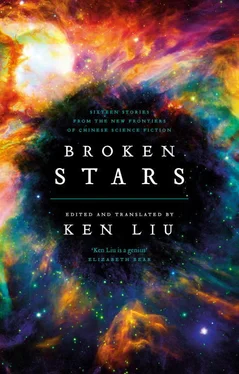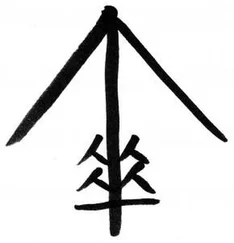The Red Guard movement grew, and young men and women turned on their teachers as “reactionary academic authorities.” At every school, Red Guards held mass rallies called “struggle sessions” to torture and denounce these enemies of the revolution. My mentor, a famous professor who had studied overseas, naturally became a target, and I was brought along to the struggle sessions as a secondary target. Half of the hair on our heads were shaved off; tall, conical hats were stuck on top; and then our arms were pulled back and held up to force us to bow down to the revolutionary masses who hurled abuse at us. My mentor was beaten and tortured until he collapsed and lost consciousness. Only then did the mass rally end.
I held my old teacher and called his name, but he didn’t wake up. Heizi helped me bring him to the hospital, but it was too late. He died a few days later.
The Red Guards were not satisfied with having murdered my mentor. They imprisoned me and demanded that I confess to all my past sins—what they really had in mind was my participation in the Tiananmen protests twenty years ago. I debated them by putting my academic skills to good use: “I was protesting against the dark path Deng Xiaoping wanted for China. We spoke loudly, wrote openly, and demanded true revolutionary democracy. This was absolutely in line with Mao Zedong Thought. We were supported by the masses of Beijing, the ordinary workers and laborers who also participated in the movement. How could you call such protests counterrevolutionary?”
The Red Guards lacked sufficient experience in this style of argument to win against me. They couldn’t get me for having foreign contacts, either, because I had burned or buried anything having to do with America, and there was now no proof of my relationship with Qiqi. But ultimately, I was probably saved because of my friendship with Heizi.
After I was finally released and allowed to go home, I found out that Shen Qian had been taken away by the revolutionary rebels who had taken over her newspaper.
Someone at the newspaper, it turned out, had revealed Shen Qian’s long-ago affair with Liu Xiaobo in a big character poster. Liu Xiaobo was without a doubt one of the worst counterrevolutionary rightists—he had once claimed that China could only be saved by three centuries of Western colonization; had drafted the capitalist legalistic screed “Charter ’08”; and had been utterly corrupt in his sexual relationships. Although he was dead, his influence continued to linger. Since Shen Qian had been his lover for several years, she must have known many of his secrets. The revolutionary rebels salivated at the prospect of interrogating one of Liu’s mistresses. They held her in a “cowshed”—a prison set up at the newspaper—and demanded that she write her confession.
Shen Qian was locked away for a whole week and I was not allowed to see her. By the time she returned, her hair had all been shaven off and her face and arms were littered with scars. She stared at me dully, as though she no longer recognized me. Finally, she recovered and sobbed uncontrollably as I held her.
She never told me what she suffered during her interrogation and I never asked. However, not long after, many people who had once known Liu Xiaobo were imprisoned and interrogated, and the rumor was that Shen Qian’s confession had been used as the foundation for accusations against them. I knew it was wrong to blame Shen Qian. In this age, survival was the only goal, and conscience was a luxury few could afford.
In this manner, both Shen Qian and I were stamped with the label of counterrevolutionaries. By the time our son returned from his revolutionary tour, he found his parents to be bona fide, irredeemable class enemies. This meant that he was also considered impure. To remedy the situation, he went to the school and hung big character posters denouncing Shen Qian and me, and revealed some so-called sins that he knew we had committed. While others watched, he slapped me in the face and declared that he was no longer my son. He turned around and walked away, proud of his steadfast revolutionary ardor. I almost fainted from rage.
After our son left, we were angry for a few days, but then began to worry. We asked around for news about him but heard nothing for a couple of months. Then Heizi’s son, Xiaohei, came to visit.
“Um, Uncle Xie… I have to tell you something. Please sit down.”
Xiaohei and my son were good friends. I realized something was wrong. I took a deep breath and said, “Go ahead.”
“Weidong… he…”
My heart sank and the world seemed to wobble around me. But I insisted that he continue.
My son and Xiaohei had joined a faction of Red Guards called the “April 14th Brigade.” He had been promoted to squad leader, but because of my status and his mother’s, he was demoted and almost expelled. To show that he had completely cast us away and was a dedicated revolutionary, my son decided to take on the most dangerous tasks and always led every charge. A few days ago, his faction fought a battle against another faction at the university; my son rushed ahead with an iron bar, but the other side had obtained rifles from the army, and with a bang, my son’s chest exploded and he collapsed to the ground…
The world blacked out around me before Xiaohei could finish.
13.
The death of our son destroyed the only hope left for Shen Qian and me. Our hair turned white almost overnight. My mother died from the shock and grief. Although Shen Qian and I weren’t even fifty, we looked much older. We sat in our home with nothing to say to each other.
I didn’t know how we survived those dark years. I didn’t really want to recall the time. Like two fish tossed ashore, Shen Qian and I lay gasping, trying to keep each other’s gills wet with the foam from our mouths. But eventual suffocation was our certain fate.
One year later, the Cultural Revolution ended.
Mao decided to retire behind the scenes and Liu Shaoqi became the President of China. Working with Premier Zhou Enlai, Liu tried to lead an economic recovery by instituting limited free markets and allocating land to individual families instead of collective farming by communes. Slowly, the country recovered, and colleges opened their doors again to new students. Intellectuals were treated better, and after a few years, Shen Qian and I were rehabilitated and no longer labeled rightists.
The ten years of the Cultural Revolution had decimated academia, and my department lacked qualified faculty. I had the respect of my colleagues and years of experience, but since I wasn’t a member of the Communist Party (due to my political history), I was passed over for promotions. Summoning my courage, I wrote a letter to the authorities demanding the country make better use of the few intellectuals it had left, but I heard nothing.
A year later, when I had already given up all hope, my fortunes took an abrupt turn: I was promoted to full professor and given membership in the Communist Party. Even more amazingly, I was elected the department chair by a landslide.
In my new position of power, I began to get to know some elite intellectuals. One time, I met Guo Moruo, President of the Chinese Academy of Sciences. He told me in confidence that Premier Zhou Enlai had read my letter and given the directive to promote me despite my flawed background. Guo told me to work hard and not disappoint the Premier. Sometime later, the Premier visited our school and asked specifically to meet me. Anxiously, I expressed my gratitude to him, and the Premier laughed. “Comrade Baosheng, I know you’re a talented man. The country is trying to get back on her feet and we have to focus on science and technology. Didn’t you once write science fiction? Why not write more and get our young people interested in science again?”
Читать дальше












